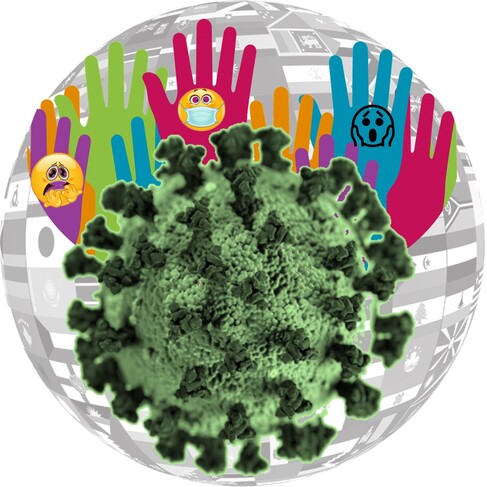|
He has not walked or talked for years. He is always on the bed. The only movement you notice is in one eye. Just barely. He breathes, so he is alive.
Then one day, the inevitable. A bed sore. It was deep and infected. The world was locked down on account of the corona pandemic. But he had to be taken to the hospital. The wound required cleaning and dressing. The doctor hoped to discharge him after a week. The hospital was under pressure. His condition was stable enough. The wound was healing, but slowly. One of the nurses agreed to come home every day for the dressing. For 15 days. So, he was discharged on the third day. The nurse arrived in the afternoon the next day. She did a good job. Patiently. With great care. As she was about to leave, I asked her about her fees. That was when I noticed the tears in her eyes. “Years ago, we used to meet almost every evening. He would be on his walk and I would be returning from the hospital. One day he stopped to talk. He was amazed that I was walking a long distance back from the hospital. Maybe I should try a scooter, he had suggested. That became a routine. We would pause for a chat. He would always say something funny. Thanks to that I would reach home smiling, the day’s tension forgotten. I wish I could return the favor now. But he does not know me, cannot hear me.” She wiped her tears and opened the gate. She paused. “No, you don’t have to pay me anything. He already paid, a long time ago.” (Based on a true incident.)
4 Comments
As he continues his quarantine at home along with wife Geeta, Mohan Joshi ponders about life then, during and after the pandemic. When the Prime Minister made an appeal for a 14-hour Janata Curfew, the word brought back memories of darkened windows, restricted movements and several happily made sacrifices. That curfew was necessary because we were at war and we were determined to do whatever it took to ensure our nation won. This time too, we are at war. The enemy is invisible, and it has engaged the whole world. Once again it is up to us to save ourselves, the people of our country, our nation, our world. Going by the opinions of experts, we may need to impose longer curfews on ourselves. Apparently, covid-19 thrives on transmission and when we isolate ourselves, stay at home and take all the precautions all of us are now well aware of, we starve the virus to death. As the Prime Minister said, it will test our resolve, our restraint and our composure. No one has been here, done thisI think the enormous response to my previous post shows how much we thirst for some honest positivity, when there is so much uncertainty and negativity around us. We cannot wish the virus away. Yet, you and I need that reassurance that at least for now all is well as can be, even if we do not know how it will end. After three days at SevenHills Hospital, the tests did not show up anything and we were sent home late on Tuesday, March 17, to continue our quarantine. That’s where Geeta and I am now. Keeping our distance, taking all precautions, and happy to be home. For us it has been an opportunity to pause, reflect and catch up on what really matters. When there is no alternative, we might as well make the experience positive. This is a new experience for the whole world. When was the last time someone had a quarantine stamp on their hand? When was the last time someone, who arrogantly dodged quarantine, was hauled up as a suicidal maniac responsible for the potential murder of thousands? That we could or were allowed to, is no longer an excuse to get away with irresponsible behavior. The time to wait for the authorities to come and enforce what is right is gone. We have to do it ourselves. Atithi? Not now, deva!Our ancient scriptures equated guest to God (atithi devo bhava). However, in corona times we would rather have no guests at home as we are forced to play to host to ourselves—all of the family at home, at once. For many of us, it is a rather strange experience. You do not need a visit to the mall, the movies or even a location across the seas to spend “quality time” with the significant ones in your life. You can all be at home, engrossed in the strange device of being together. It is a virus-sent opportunity to revisit a healthy, old ritual—eating together as a family. How about dusting some books that have been waiting for your attention? And ensuring that everyone handles a fair share of the household chores, without hiding behind the laptop? By now you must have realized that your maid is as human as you are. That there are things you always knew how to do (but never did) to keep the house running. Just the way she needs to keep her home going. Would you consider giving her (or your driver) a few days off without deducting their salary? She/he needs that salary to survive, which is definitely more important in the humane scale than a drop in your comforts. However, we will need to figure out how to fill another important gap. Going to school offered a great opportunity to interact with fellow human beings. Yes, we were always worried about the children becoming slaves to the screens. Now, another screen has replaced the teacher, the whiteboard and, more importantly, the school ground. Until “normalcy” returns, should we consider more board games at home? Maybe hide-and-seek within the confines of the apartment? Anyone has a better suggestion? We are as safe we make othersThe President of India expressed it well, when he said, “We are as safe as the care we take of others’ safety, not only of human beings but also of plants and animals.” He added, “Nature is reminding us to acknowledge, with humility, our quintessential equality and interdependency.” Before the virus (actually even now) only negativity stood a chance to go viral. Eventually, when the virus decides to step aside, let us forget viral, and make positivity, self-discipline, responsibility and compassion vital, online and offline. First published here by Mohan Joshi
Geeta and Mohan Joshi just returned from Spain and are presently in quarantine in Mumbai. This is Mohan's account of his experience so far. Right now, I am in Mumbai’s SevenHills Hospital. My wife and I are among the first travelers to be quarantined in this facility that is being brought back to life to cope with the challenge posed by the coronavirus. I was last here when my grandson was born, and it used to be a thriving hospital then. Now 8 years old, he was his usual happy and chatty self when the family gathered for lunch at a restaurant in Barcelona, Spain, on March 7, 2020. We were visiting our daughter’s family and we had happily extended our planned stay of one month by another 17 days. After we reached home, a friend who was planning a visit to Spain on March 19 called up. I reassured him that there was no panic in Spain. There was no reduction in the number of tourists, and I had not seen anyone wearing a mask. Still 10 days to go, so let’s plan another lunch, I told my family. Panic upsets plansThen the viral panic caught up with us. The numbers started mounting. Both India and the US virtually shut their borders. Suddenly, we were in a dilemma. We had insurance and sufficient stock of personal medicines. So, should we stay where we were in comfort or take the next flight out? As the news got worse by the day, someone in the Indian embassy suggested we were better off leaving Spain as soon as we could. There was perhaps no escaping quarantine. At least we could avoid overstaying our visa. We decided to leave. It was a painful task to console my grandson, who was heartbroken that we were going away when there were “still so many days left”. We rescheduled our departure to Saturday, March 14. Around 10 the previous night came reports of flights being cancelled and turned back midair. We spent a sleepless night, not sure what lay in store, thinking of very many if-only scenarios. Long queues greeted us at the airport. People were grabbing what everyone understood to be the last opportunity to fly home—Beijing, New York and, in our case, Mumbai. Our Barcelona-Abu Dhabi-Mumbai flight was full all the way. Conversations were muted, movements circumspect. Home and in quarantineWe had been fully briefed about what to expect once we landed in Mumbai. I was confident that as my wife and I were free of symptoms, we would be asked to quarantine ourselves at home. Then came the instruction that we had to write our age prominently on top of the form we were filling in. We found ourselves in a separate queue for those above the age of 60. Some people from Brihanmumbai Municipal Corporation (BMC) took charge of us. They took our bags and escorted us through various checks. A doctor told us that we would be taken to SevenHills Hospital, to be quarantined for 14 days. Just as a precaution, he assured us. Outside we were ushered into an air-conditioned bus. We are now in a two-room facility at SevenHills. The building that had been closed for more than a year is being made functional floor by floor. People are at work round-the-clock. They have been quick to set up Wi-Fi and a TV is being commissioned. All electrical and plumbing systems have been double checked. “How many patients are there? And how much do we have to pay?” I was curious. “You are not a patient, sir!” came the reply. “You are a traveler and now you are our guest.” His smile would have felt at home in any five-star hotel. Let us be what we can beEvery piece of information about the virus is out there. Every fresh case is being tracked. There is no shortage of posturing and blaming across all sorts of divides: political, geographical and religious. There is fear, anger and frustration. There is naked display of self-interest as people dodge quarantine as if the virus is yet another system they can game. I want to share this because there is also genuine courtesy, care and concern. The kind we are experiencing now. I am grateful. To these people of those very government institutions we like to blame whenever anything goes wrong. Let us thank them for stepping up. And let us do our bit to help them. When it is safe to do so again, I would like to shake more hands (if that gesture is still in vogue) and smile at more strangers. Complain less and think more of what I can do for the sake of all of us. Personally, I hope we will emerge stronger from this quarantine. It has already shown me what we humans can be, if we just try. Why wait for a calamity? First posted here by Mohan Joshi.
|
AuthorVijayakumar Kotteri Categories
All
Archives
July 2024
|



 RSS Feed
RSS Feed

